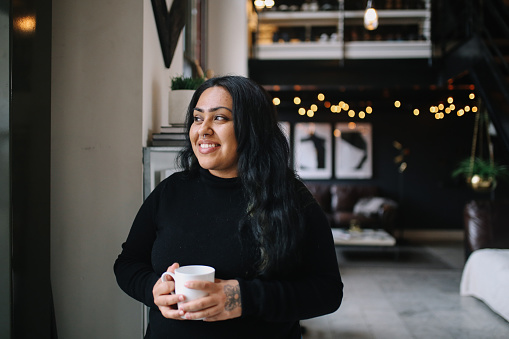
The journey of being single is about finding fulfillment and happiness in your own life, whether or not you’re in a relationship. By embracing your single status, you can find ways to enjoy the present moment.
Sometimes, these discoveries lead to not pursuing romantic relationships with the same determination as before. There is a whole new movement of people who are choosing to be single because they find that it gives them the most satisfaction in their lives. Lately, this resonates strongly with Millennials, who are comparing their lives and goals to that of their parents at the same age, coming up with different desires, and sharing their findings with the generations coming up behind them. We’ve seen how our therapy for Millennials in Woodland Hills has helped to shine a light on these questions and reveal answers that sometimes surprise people.
Other times, this journey leads you to understand who you are and what you want to such a degree that you find it easier to know what is working for you if and when you decide to start dating again. You may be happy to be single, enjoy intentional singleness, and still determine in the end that you desire a romantic partner. Either way, the authentic journey of happy independence is one worth taking.
What is Intentional Singleness?
Intentional singleness refers to a deliberate decision to remain single, often for an extended period of time or for the foreseeable future. It’s a conscious choice to prioritize one’s personal growth, goals, and interests over pursuing romantic relationships or marriage. It’s important to note that intentional singleness is a personal choice, not a stat -imposed on someone by circumstance or external factors.
Benefits of Being Single
Independence and freedom: Being single allows you to have complete control over your life without considering a partner’s needs or desires. This can include deciding where to live, your work schedule, your

hobbies, when you see your friends and family when you take time for yourself, and more.
Flexibility: Without the obligations and responsibilities of a committed relationship, you have more time and flexibility to pursue your interests and hobbies. You can be occupied with other pursuits and change your mind about prioritizing your pursuits as you see fit.
Lower stress levels: Without the pressure and demands of a relationship, you may experience less stress and anxiety in your day-to-day life. Interpersonal relationships take work, and romantic relationships are no exception.
3 Ways to Create an Authentic Journey of Being Single
1) Focus on self-discovery and self-love:

No matter what interpersonal dynamics exist in your life, self-love work is always necessary. You can learn to love yourself, whether coupled up or single, and you can be loved by others even if you’re still learning to love yourself. But experiencing true, healthy, unconditional love is much easier when you have worked on self-love and self-care. Having time to be single provides mental space that can streamline that process. It also puts you in the position where the things we are socialized to be validated by, such as words of affirmation, being embraced, and being “chosen,” are no longer on the table. How do you choose to validate yourself for yourself? When was the last time you considered your love for yourself? When was the last time you sat down and considered all the ways you might choose to show yourself love and care?
Being single allows you to focus on your personal growth and self-improvement. You can explore your values, beliefs, and priorities without the influence of a partner. Through this process, you may discover that you prefer a lifestyle you haven’t been able to explore while partnered up. This may include living alone, setting your schedule, trying new things, remembering old hobbies and passions, and more.
Self-discovery and self-love often come with undoing some harm that has been done. Even the people with the best intentions can hurt us, however unintentionally. Have you been talked down to or shamed about some of your attributes? If you’ve always been single and felt bad about it, where did those thoughts come from? How do they shape your self-perception? Have you had partners who undermined you when you expressed your feelings or didn’t take your needs seriously? If so, you are not alone, and you may have some questions about where your needs actually lie. You might not feel fully in touch with yourself.
If you’re coming out of a breakup, you might be thinking about these things for the first time in a long time. Through post-break-up therapy, you can explore the underlying roadblocks to your self-love and self-acceptance. You can do a deep dive into your past experiences that have shaped your needs and wants. What messages did you receive about your “worthiness” as a child? How did the people who raised you speak to you about yourself; how did they model self-love and self-care, if they did at all? How secure were your attachments to your caregivers?
Were you encouraged to explore your passions and hobbies as you grew up? Did people around you cheer you on? Did you actually take time to consider what you enjoyed, what you felt you were good at, and what interested you? What is it you like to do? Do you enjoy doing things on your own, or do you like to have someone there to share your experiences with?
No matter how you were raised, how many romantic relationships you’ve had or haven’t had, or where you see yourself ideally ending up, the most important relationship you have is with yourself. You are the person you will definitely be with for your entire life. The thoughts in your head are the most constant voice you hear. You are the person with the most power over you. Treating yourself with respect and love is how you thrive, grow, and find peace.
2) Practice Letting Go:
Our mind’s tendency to plan ahead makes it hard for us to stay in the present moment and embrace it fully. No matter what the reasons are for your moment of singlehood, your mind will at times wander

off to the future and think about “When will I meet someone?” or “When will I get married?” or “Is it getting too late for me to have kids?”
A practice we discuss with our clients in therapy in Woodland Hills is about letting go of control and surrendering. Ask yourself what this might mean for you. Many people misunderstand surrender as defeat or “giving up”, but that is now true. The simple truth is that some things are within our control, and some are not. For example, if we are upset, we can control how we speak to another person. We can take a pause to choose our words; we can manage our volume and tone. We cannot, however, prevent others from taking actions that might upset us. We cannot control the weather, but we can control whether we wear a coat or not.
A great tool for our surrendering toolkit is to practice mindfulness. Mindfulness allows us to ground ourselves in the present moment rather than ruminating about the past or fretting about the future. We achieve this by utilizing our senses to remind us of exactly where we are, meditating, and allocating time to reflect and plan. Getting in the habit of sitting down once a day, once a week, or however often works for you to review what you’re thinking about, reflect on your struggles, and plan for your future teaches your mind that it has an appropriate time and place for those thoughts. This makes it easier to talk kindly to yourself about letting go of thoughts at inopportune times.
If and when you begin to worry about what impact your current single state will have upon your future, reconnect with the present moment. Where are you? How do you feel in your body? Are you breathing deeply enough? Are you hungry? Are you hydrated? Are you well rested? Have you moved your body today? Now ask yourself: “What can I control?” You are in control of your actions, your words, your mindset. You are in control of your plans and goals. You are in control of knowing, respecting, and loving yourself. This means that this time of being single is the time for you to determine what makes you happy day by day. There is no way to “guess the right answer” in life. All you can do is listen to yourself, use the information you have, and do your best to make decisions that feel authentic to you. What does a good day look like to you? How can you make your life the best it can be as a single person? How can you choose to spend your time in ways that move you toward your goals? And how can you release the idea of what you think you want? Remember, we have all had times when we were so certain we wanted something specific. A couple of years later, we often look back and realize we didn’t want it after all. This is why focusing on what you have, what you are doing, and how your life looks now is most beneficial. It is the most accurate reflection of what is really going on in your life.
3) Strengthen Family and Peer Relationships:

When you’re single, you have more time and energy to invest in your friendships, which can strengthen those relationships and provide a valuable support system. Building and maintaining these relationships can be a struggle when we are romantically involved with someone. Unfortunately, many of us have experienced the pattern of ghosting our friends when a new partner comes into the picture, knowing they will be there for us whenever we need them. When you are conscientious in your single-ness, you recognize that a person or group who can be relied upon unconditionally deserves to be treated with greater care and respect, not less. If any interpersonal relationship requires you to sacrifice your loved ones, especially those who have always been there for you, to make it work, it’s probably not the healthiest dynamic.
Because our practice offers therapy for young adults in Woodland Hills, we see many young people going through their first heartbreak. We know that that pain can feel so deep that it’s bottomless; it is a real loss that most people go through. Having the time and energy to invest in your family and peer relationships can be a blessing during a difficult time like a breakup.
Friends and family have often been with you through thick and thin. They may have many shared memories with you, whether from long ago or inside jokes about a shared work environment or rambunctious family BBQ that people still gossip about to this day. Having a shared history helps to ground us in who we are and where we’ve been. The people who have been with us through our ups and downs often know and love us as we are. Think of ways in which you can spend quality time with these people. Do you have shared hobbies or passions, such as yoga or a favorite TV series that you like to watch over and over again? Do you enjoy baking, hiking, and riding roller coasters? Your friends and family can participate in these activities with you just as easily as a partner could or as you could do on your own.
If you are single again after a long relationship or a series of relationships, you may have some exploration to do with family and friends. Depending on how busy you were with your partner, you might have missed much of their news, and vice versa. This is a good time to remind yourself of what your priorities are. Do you feel like you’ve spent the amount of time with your loved ones that you would have liked to lately? If not, how can you adjust your schedule to make more time for them? Going forward, were you to remain single, would that stay the same? If you were to enter into a romantic relationship again in the future, how would you adjust your schedule to still spend time connecting with your friends and family?
When you truly find harmony in your intentional singleness, you no longer seek a partner who just clears the bar. You will be looking for someone who makes your life better, period. Once you enjoy being

single, you will prefer being alone over being with someone just to have someone around. You may determine that if someone came along who made your life happier, easier, and more peaceful, you would commit. But that will be the standard; nothing less will work for you. In this way, you fully invest in yourself without apology or hesitation, which is real freedom and happiness.
Individual Therapy for Young Adults at Embracing You Therapy
Whether you are single or in a relationship, going through life can be demanding and challenging as a young adult. Therapy for Young Adults is the place where you explore who you are and what you want out of life.
Our therapists who specialize in CBT and Mindfulness approaches value self-awareness and insight that comes from getting to know oneself and setting relationship goals and boundaries that align with who you are, not just what your family and friends may suggest.
Contact us today for your complimentary 20-minute phone consultation with our Client Care Coordinator.




